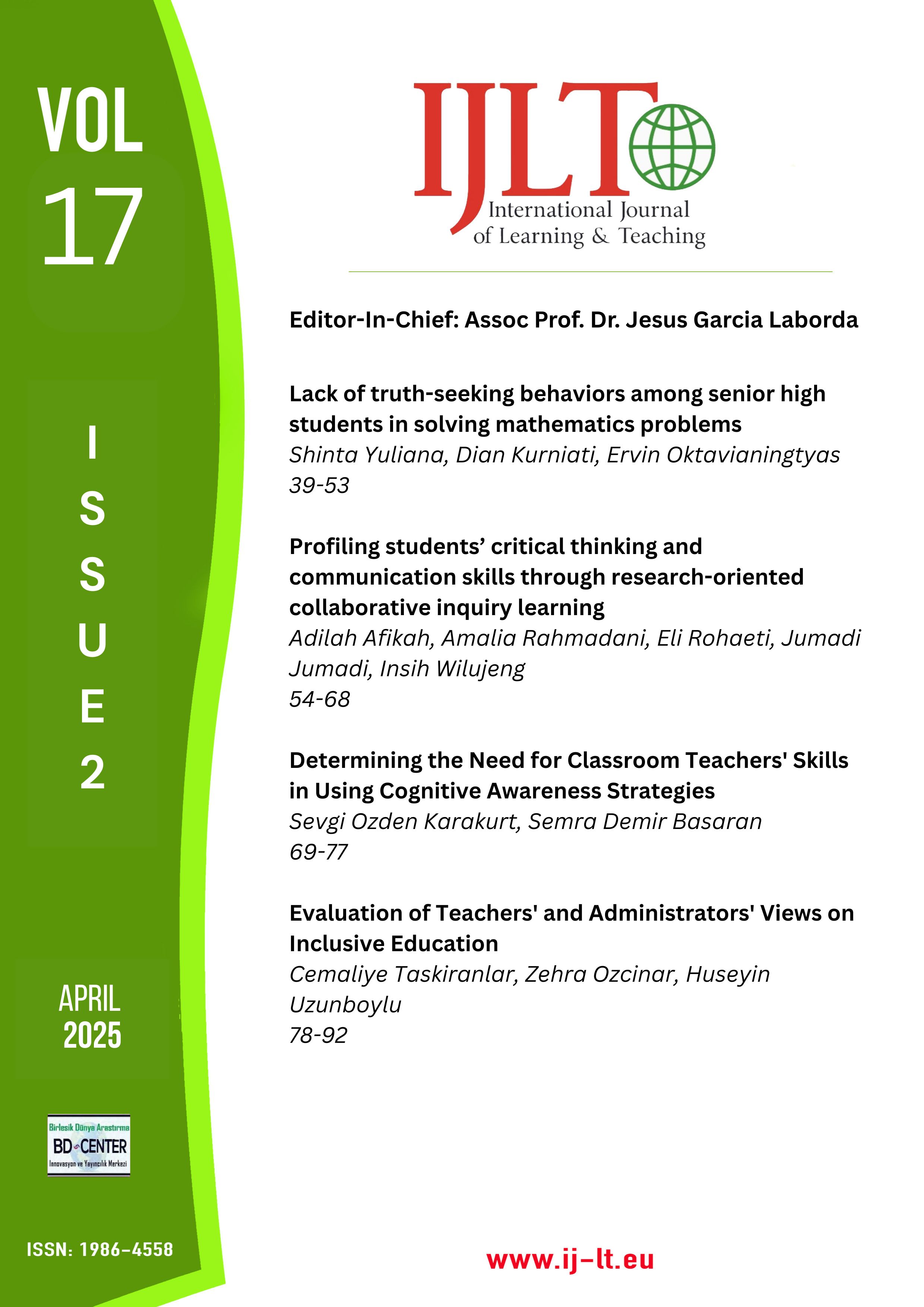Profiling students’ critical thinking and communication skills through research-oriented collaborative inquiry learning
Main Article Content
Abstract
Research-based learning through teacher-guided collaborative activities offers students meaningful and direct learning experiences. This study aimed to examine how students' critical thinking and communication skills develop through the application of the Research Oriented Collaborative Inquiry Learning model. A descriptive method with a quantitative approach was employed, with purposive sampling used to select a sample of 29 grade nine students. Data were collected using structured observation instruments designed to assess critical thinking, oral communication, and written communication skills. The learning stages of the model were implemented with a high level of adherence, indicating effective instructional execution. Observational data showed that students demonstrated moderate proficiency in all three skill areas. The findings suggest that the model is effective in promoting the development of essential competencies, particularly in science education at the junior secondary level. By engaging students in collaborative inquiry and guided research activities, the model fosters both analytical reasoning and communication in classroom contexts. These results highlight the value of structured, inquiry-based learning in supporting cognitive and interpersonal skill development.
Keywords: Communication skills; critical thinking; inquiry-based learning; research-oriented learning; secondary education
Downloads
Article Details

This work is licensed under a Creative Commons Attribution-NonCommercial-NoDerivatives 4.0 International License.
Authors who publish with this journal agree to the following terms:
- Authors retain copyright and grant the journal right of first publication with the work simultaneously licensed under a Creative Commons Attribution License that allows others to share the work with an acknowledgement of the work's authorship and initial publication in this journal.
- Authors are able to enter into separate, additional contractual arrangements for the non-exclusive distribution of the journal's published version of the work (e.g., post it to an institutional repository or publish it in a book), with an acknowledgement of its initial publication in this journal.
- Authors are permitted and encouraged to post their work online (e.g., in institutional repositories or on their website) prior to and during the submission process, as it can lead to productive exchanges, as well as earlier and greater citation of published work (SeeThe Effect of Open Access).
